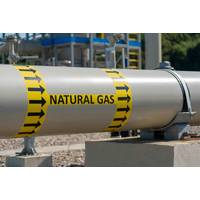Oil Prices Up, Weekly Loss Looms
U.S. crude surges after hitting 12-year low; more talk of coordinated production cut lifts Brent.
Oil prices jumped on Friday on prospects of a coordinated production cut sparked by comments from the energy minister of OPEC member United Arab Emirates.
Still, analysts said such a move remained unlikely and prices for Brent and U.S. West Texas Intermediate (WTI) crude were on track for weekly losses of more than 7 percent and 11 percent, respectively, weighed down by oversupply.
Brent gained as much as 6 percent against the previous day's settle and was up 4.42 percent at $31.39 per barrel at 1216 GMT.
"The comments by the UAE oil minister are pushing prices up...but we're still in a long-term downturn. That hasn't changed," said Hans van Cleef, senior energy economist at ABN AMRO.
He said Friday's spike was "an indicator that it's not a one-way price movement anymore ...we will see a period of high volatility".
UAE Energy Minister Suhail bin Mohammed al-Mazrouei said the Organization of the Petroleum Exporting Countries was willing to cooperate on an output cut, but added that cheap oil was forcing supply reductions that would help rebalance the market.
WTI futures gained as much as 6 percent and were up 4.46 percent at $27.38 per barrel at 1216 GMT after hitting lows not seen since 2003 in the previous session.
Traders said the jump in WTI could have been a result of U.S. producers unwinding hedges they had locked in at higher prices in order to generate cash to service debt and costs.
Despite the UAE comments, analysts said they saw little chance of a common policy from OPEC producers.
Ayham Kamel, Middle East and North Africa director at Eurasia Group, said it was unlikely there would be a serious discussion of any deal between Iran and Saudi Arabia until there was clarity on Iran's post-sanctions output.
"Even then, the fact that U.S. shale production is responsive to prices on a much shorter timeframe than other oil production also means that there is less of an incentive to work to transcend the geopolitical tensions and come to an agreement within OPEC, or even one including Russia," Kamel said.
Oil prices have tumbled over 70 percent since mid-2014 as producers pump 1-2 million barrels of crude every day in excess of demand as economic growth stalls, led by China's slowdown.
"Oil is highly volatile," Bjarne Schieldrop, chief commodities analyst at SEB in Oslo, said, adding "it's very clear that we're still running in a surplus situation and stocks are building".
By Libby George





